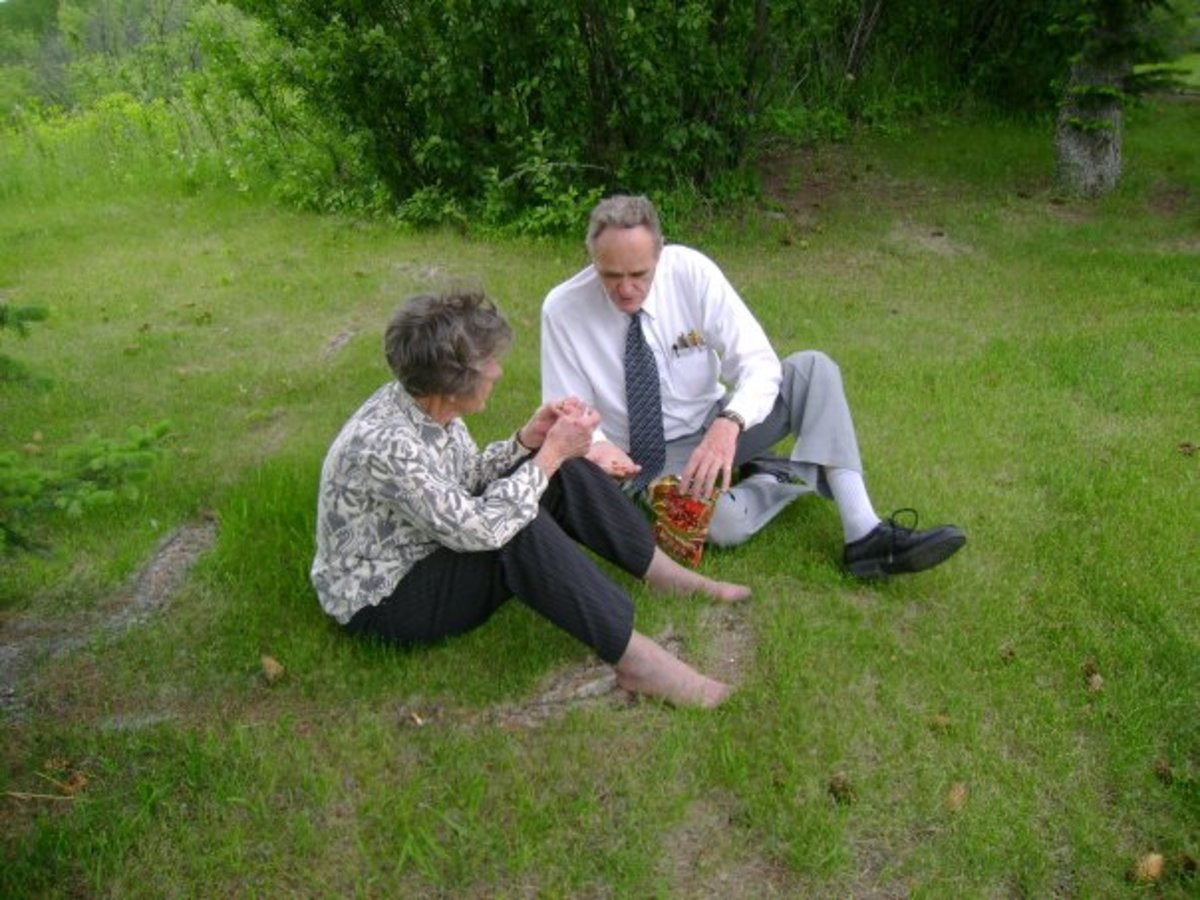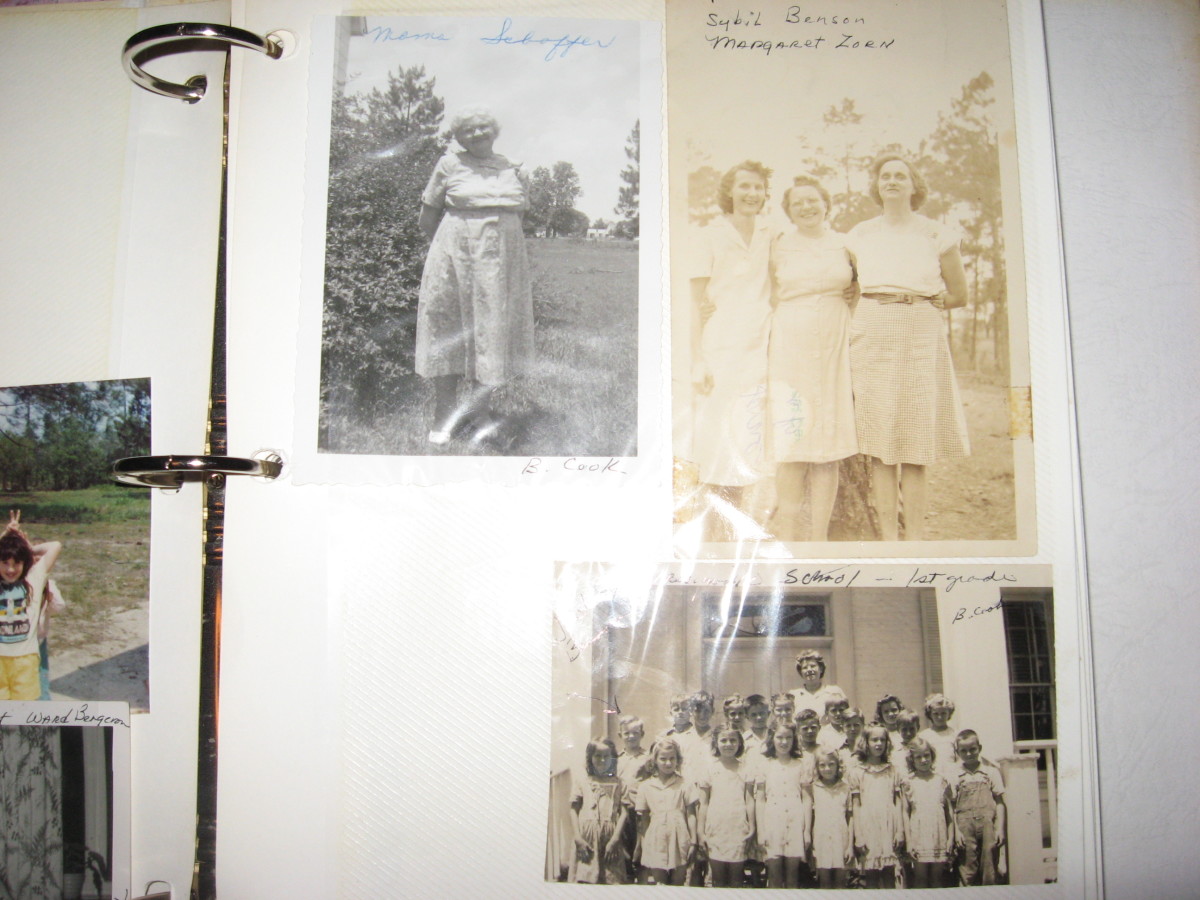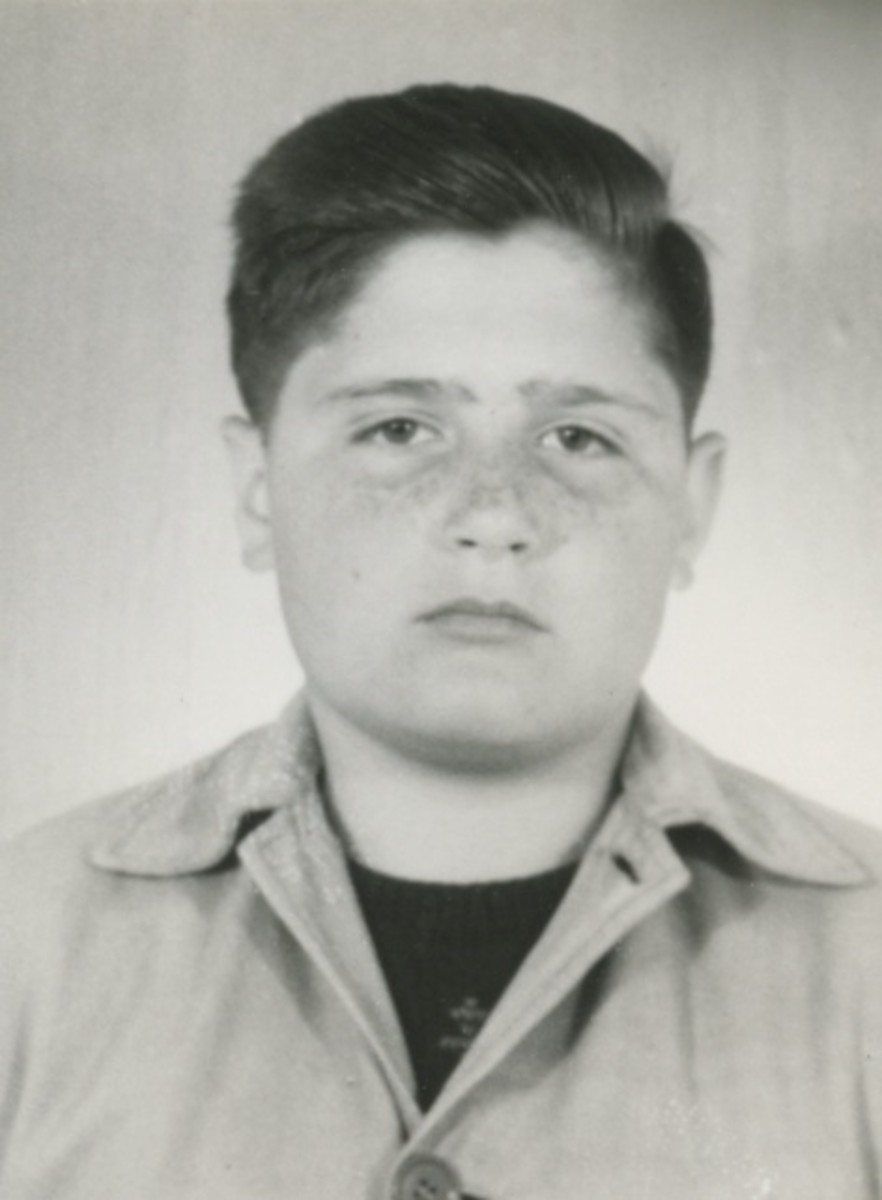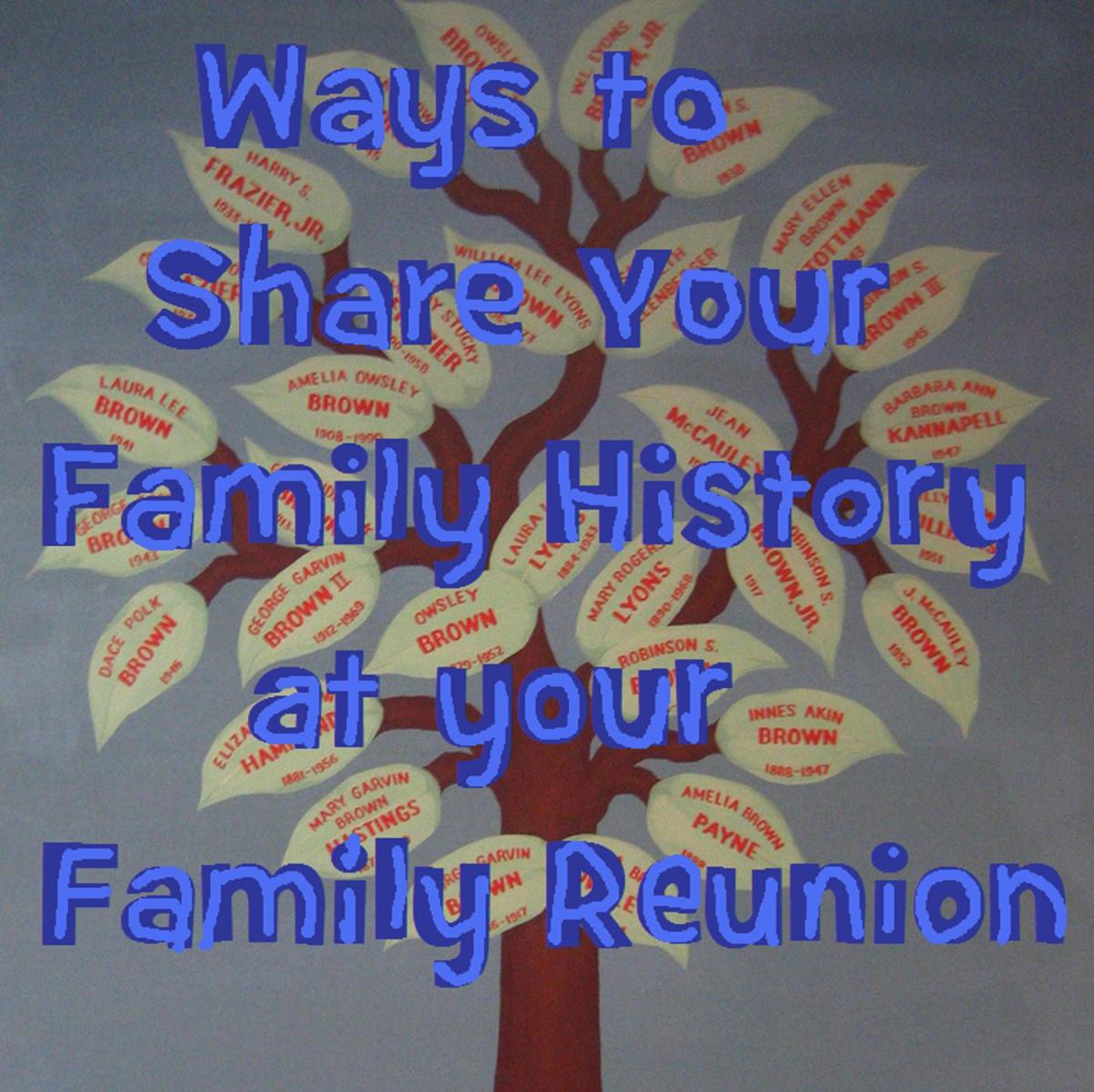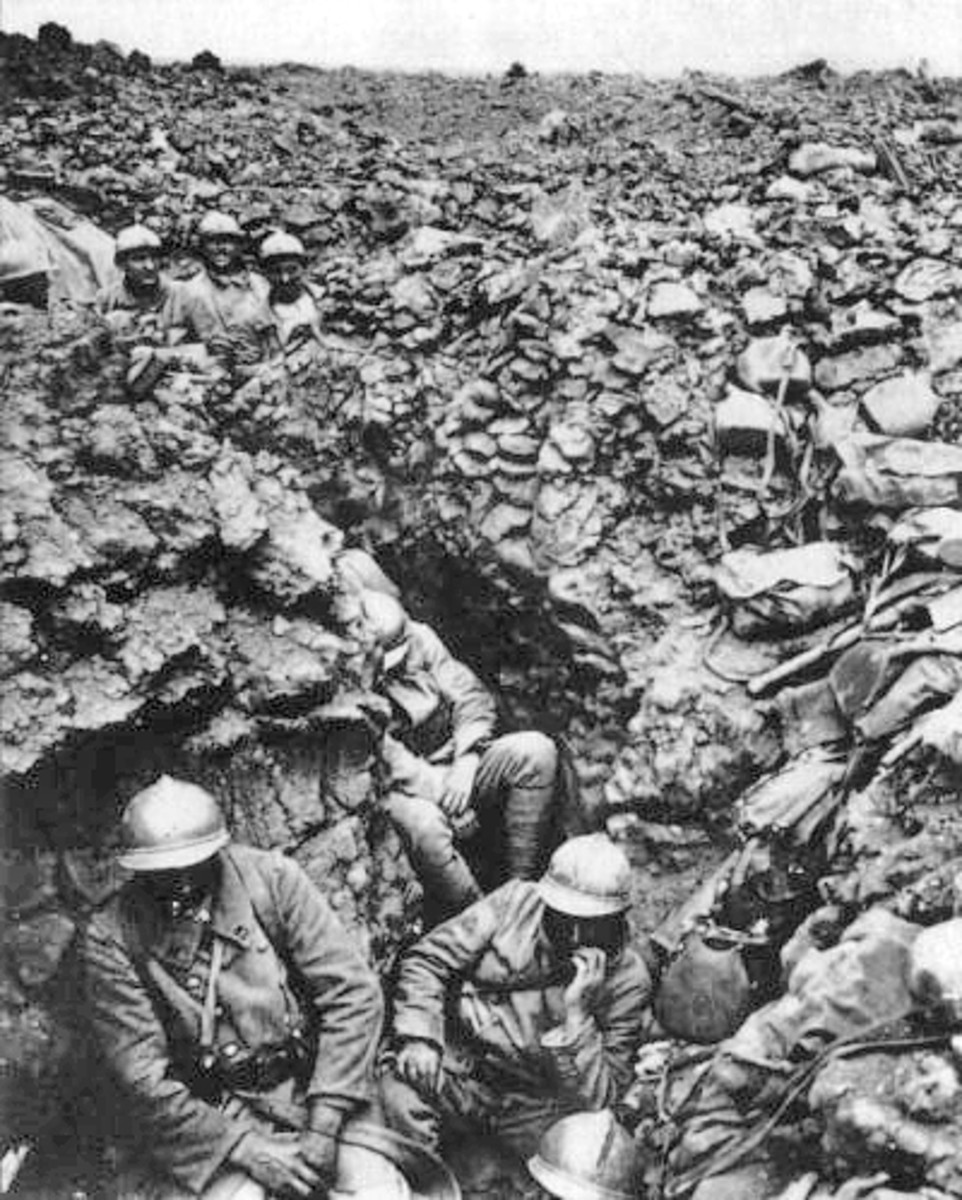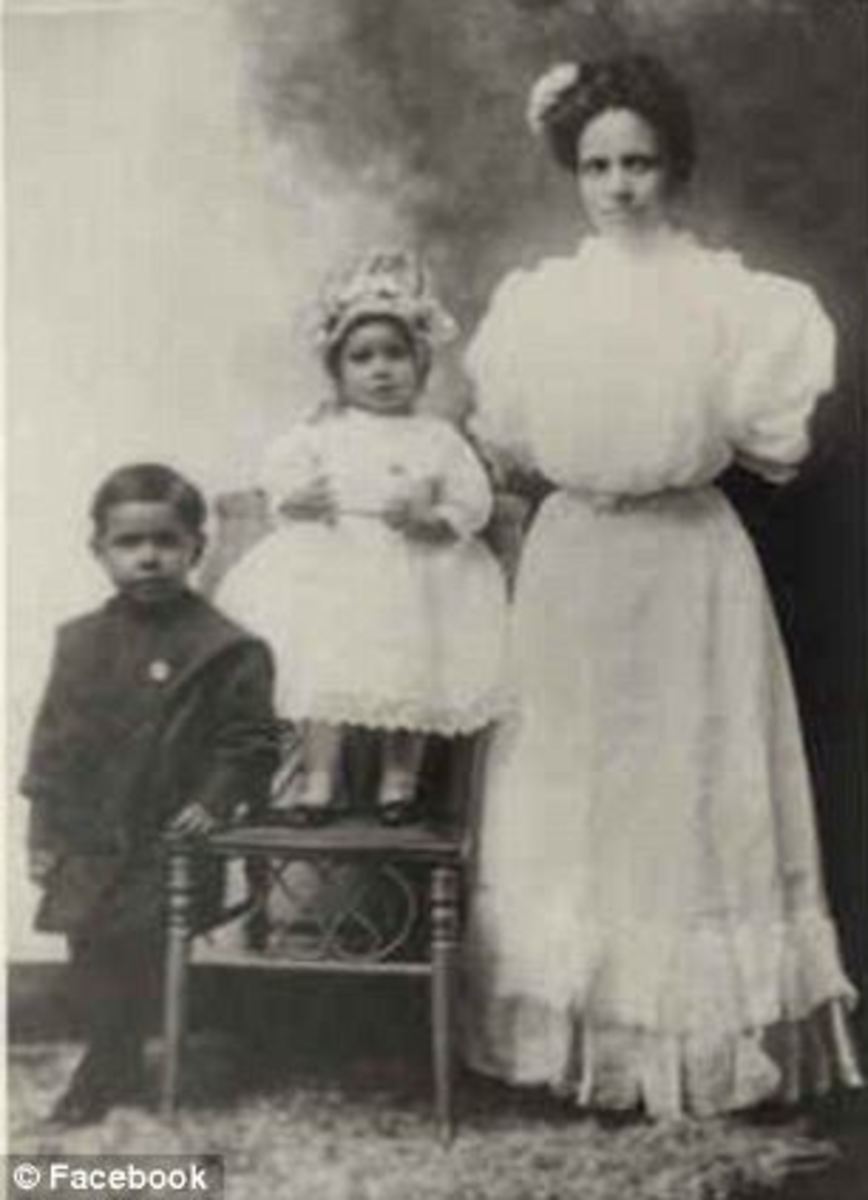A World War II Yugoslav Childhood between 1939 and 1950

No Ordinary Childhood
Kosta was born in Serbia in 1939, before the German occupation of Yugoslavia began. His earliest memory was frustration because he wanted to climb a tree that was too wide and too tall for him to climb. His dad gave him a boost to help. He also remembers playing with blocks and being bitten by a German Shepherd. He lived with his parents, a younger brother, and an older sister near the center of Belgrade, across from the War Department Building. He had an infection as a child that delayed his being able to walk as soon as other children did. His sister was an invalid. She had had meningitis, and was half blind. During the German Occupation of Belgrade, one of the German generals sent a messenger to Kosta's parents asking them to shut their windows at night because Kosta's crying was keeping the general awake at night.
In 1942, the Germans invaded Yugoslavia, and they arrested about a hundred prominent men from Belgrade to use rather like hostages in case the city attempted to fight them. If there was an insurrection, those who had been arrested would be executed. Kosta's father was one of those in prison.
The Picture - This picture is the symbol of Kosta's last days in Belgrade
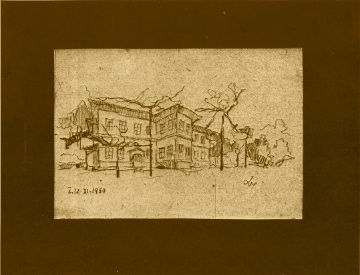
A Bit of Background and Family History
He will tell you the story behind it as this article progresses. For now I will ask you if you remember who was president, prime minister, or ruler of your country when you were six to eleven years of age. What do you remember of politics from that period of your life? As I interviewed Kosta about this period of his life, some sixty years ago, he could not remember the name of the German officers and Russian officers that came and went in his life, and some of the dates were also a bit fuzzy. So, remember, that although this is eyewitness history, it isn't from a book, but from memories of periods that were lived through. Pictures were also hard to come by, and there aren't many in the pubic domain of the places mentioned here as they appeared in the 1940s and in 1950. No one had any idea back then that this bit of family history might be written and need illustrations.
A bit of family history will be important to know as this story progresses. My mother-in-law, Paula Schmidt Radisavlejvic, was Croatian, and her ancestors were German. She spoke German fluently. My father-in-law, Dragoslav Radisavljeivc, was a prominent Serbian architect. He had also owned a factory that made cement blocks that could be used in place of bricks when bricks were too expensive to use. His mother was of Austrian ancestry, and they also spoke German. This makes my husband, Kosta, part Croatian, part Serbian, and part Austrian. His father was Serbian Orthodox, though he did not attend church on Sundays. The family celebrated Slava, an important Serbian Orthodox holiday.
Topcider Park and Planning the Second Escape - The Story Behind the Drawing
This story takes place shortly after Kosta's parents were released from a Communist prison where they had been political prisoners. Kosta, who was about eleven, had also been in the prison in case they needed him to use in order to get his parents to talk (by threatening to torture Kosta). Because his parents had contacts in the media outside the country, they threatened to let those media contacts know the Communists were holding an innocent child in jail and why, and that got Kosta released because it would have made the regime look bad to the rest of the world. Kosta was sent to live with relatives.
This video tells the story of what happened right after the family was united after the prison experience. They had been imprisoned because they tried to escape the country, and Kosta's dad didn't listen to Kosta's mom when she was pretty sure the one who would lead them out was in cahoots with the police. She was right, and they were caught. That's important to know when listening to this video.
Political Prisoners and Refugees
My husband's family came to North America with almost nothing because they were political refugees who had escaped a country that had also put them in prison for purely political reasons.
Please take the poll below so we can see how many others have had a similar experience.
Have you ever personally known, or perhaps yourself been, a political prisoner or refugee from a repressive government?
Understanding World War II - What happened in Yugoslavia did not happen in isolation.
It took place in the context of the period between World War I and 1953. To fully understand what Kosta's family went through, one also needs to understand what was going on in the rest of Europe. Winston Churchill's writing is that of one who was involved, as Prime Minister of England, in actually making the history, and as such, his eyewitness accounts are very valuable.
Could what happened in Yugoslavia ever happen in America? As I write this, radicals are trying to chip away at the Bill of Rights and change our culture. The other books I've recommended will help you understand how they are doing that.
Second Escape Story, Part 2
In the last video you know Kosta's family had planned to make another escape, but not as a family this time. They had gotten a divorce so his mother could get her maiden name, which was German, back, so that she could legally leave the country with Kosta. This was a divorce in name only. Kosta's father lived with relatives on paper, but stayed home most of the time. And he was home when the police, who were suspicious, came to the door and Kosta answered it.
Communism and Personal Freedom Can't Coexist
You might wonder what Kosta's parents did to get on the bad side of the government enough to have been imprisoned. They were recruited for positions of leadership in the new Communist regime and asked to be ambassadors. They refused. When asked why, they explained they saw no difference in the tactics of the Communist secret police and the German Gestapo. That was their crime.
Kosta's parents never thought their country would become what it did. They could have left before the war, but it was difficult for them to believe the political situation could so radically change from what it had been before World War II and the takeover of the Communists. Many Americans believe such things could never happen in America. But it can, and might be already beginning. We need to educate ourselves and find out why the socialist plan we are being nudged toward cannot work without treading on individual liberty and private property rights.

Socialism and Liberty
According to Karl Marx, socialism is a transitional state between capitalism and communism. Its purpose is to prepare the way for communism, which in theory will be a society in which government has vanished and everyone lives happily as each gives according to his ability and gets according to his need. Unfortunately, this never really happens. So the transitional stage in which the government controls the means of production and the people under a dictatorship which executes central planning of the economy, supposedly for the good of all the people, remains.
Capitalism, on the other hand, emphasizes free trade and limited government. It respects the individual's right to his life, liberty, and property. It was the system that prevailed in the early history of the United States as a Constitutional Republic.
Second Escape Part 3 - Kosta's Dad is Questioned by Police
Second Escape Part 4 - Crossing the Bridge Across the Border without a Passport
This video shows me clearly that God had his hand on Kosta's family and wanted them to be back together. Listen to this incredible story and see if you don't agree.
More About Kosta's Family under Communist Rule
This is the second article I have written about events that occurred in Kosta's childhood. The first one I shared here was "An Enemy of the People?" This story told by Kosta is about a time his father was arrested as an "enemy of the people," and how he got cleared of the charges. It illustrates to me the principle that we will reap what we sow. You never know when the person you treat respectfully and fairly will be the one who saves you later on.

